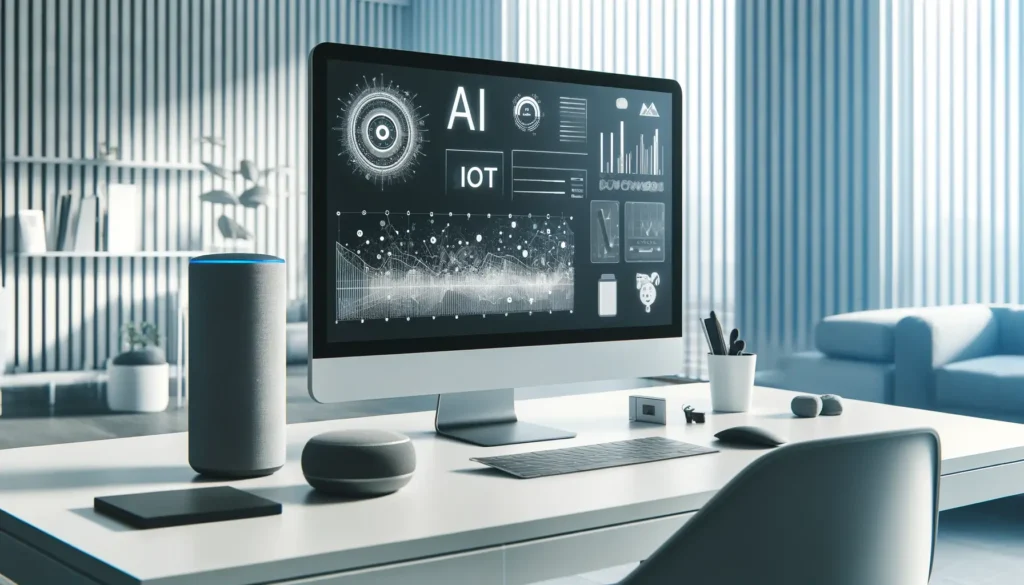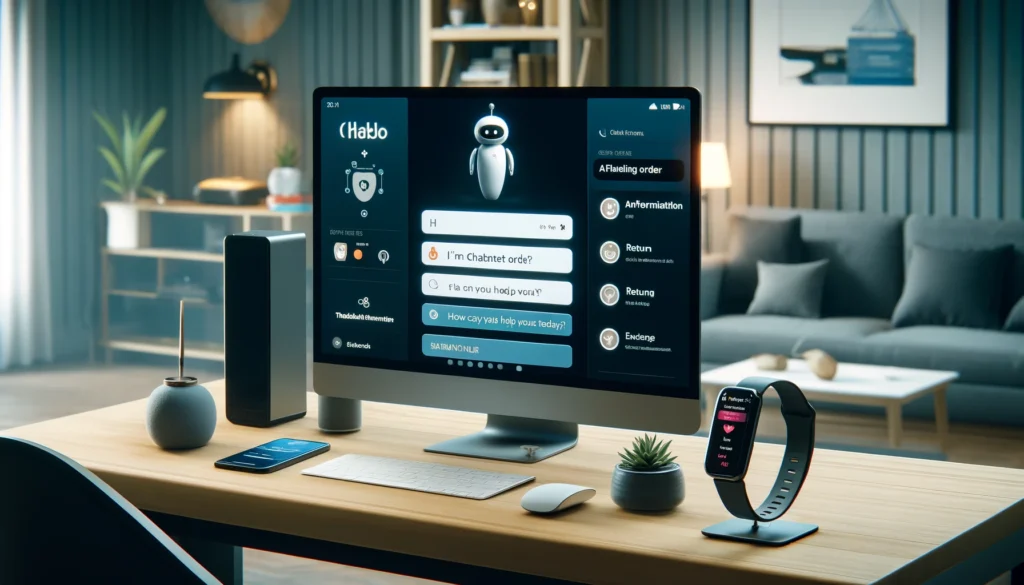Marketing Automation with AI and IoT – Part 1 of 2

Leveraging Artificial Intelligence (AI) and the Internet of Things (IoT) in Marketing Automation
Marketers today juggle a mountain of data, always on the hunt for innovative ways to streamline their processes and enhance customer experiences. The fusion of Artificial Intelligence (AI) and the Internet of Things (IoT) is proving to be a game-changer in the marketing world.
With AI, marketers can leverage machine learning algorithms to analyze vast amounts of customer data and gain valuable insights into consumer behavior and preferences. This enables them to create highly personalized marketing campaigns that resonate with their target audience, leading to increased engagement and conversion rates. Combine that with IoT devices and they have a powerful two-punch combo that provide them with real-time data about consumer interactions, allowing them to deliver timely and relevant messages.
From smart appliances to wearable devices, IoT enables marketers to connect with customers at every touchpoint, providing a seamless and personalized experience.
In this two-part article, we’ll explore the benefits of using AI and IoT in marketing automation and how they can help businesses achieve their marketing goals.
AI in marketing automation goes beyond simple data analysis.
Artificial Intelligence (AI) has transformed the way marketers approach automation. With AI-powered tools and algorithms, marketers can analyze vast amounts of customer data, enabling them to understand consumer behavior and preferences on a deeper level. This understanding allows for the creation of highly targeted and personalized marketing campaigns.
It can also help marketers identify patterns and trends that may not be immediately apparent, enabling them to make data-driven decisions and optimize their marketing strategies. By automating repetitive tasks such as data collection, analysis, and campaign optimization, marketers can focus their time and energy on more strategic initiatives.
Additionally, AI enables marketers to create chatbots and virtual assistants that provide personalized customer support and assistance. These AI-powered tools can respond to customer queries, recommend products or services, and even process transactions, providing a seamless and efficient customer experience.
Exploring the Internet of Things (IoT) in Marketing Automation
The Internet of Things (IoT) is a network of interconnected devices that collect and exchange data. From smartphones and smartwatches to smart appliances and even cars, IoT devices are becoming increasingly prevalent in our daily lives. For marketers, this represents a wealth of opportunities to gather real-time data and deliver personalized experiences.
IoT devices provide marketers with a wealth of data about consumer interactions, preferences, and even location. For example, a smart refrigerator can track the types of food a customer consumes and send notifications when certain items need to be restocked. Marketers can leverage this data to deliver targeted messages and offers, creating a highly personalized shopping experience.
Furthermore, IoT devices enable marketers to engage with customers at every touchpoint. For instance, a wearable device can track a customer’s fitness activities and provide personalized recommendations for exercise routines, nutrition, and even clothing. By connecting with customers through IoT devices, marketers can deliver relevant and timely messages that resonate with their audience.

The Power of Automation Tools
Marketing automation involves using software tools to automate repetitive tasks such as email marketing, social media posts, and lead nurturing. This allows businesses to save time and resources, while also providing a more personalized experience for customers.
Automation tools have become increasingly popular in recent years, with the market spending reaching over $25.1 billion in 2023. This growth is due to the numerous benefits that automation tools provide, including increased efficiency, improved customer engagement, and higher ROI.
Streamlining Marketing Operations
With automation tools, marketers can streamline their operations by setting up workflows that automatically handle tasks based on specific triggers and conditions. This reduces the need for manual intervention and enables marketing teams to focus on strategic initiatives.
Enhancing Customer Engagement
Marketing automation tools excel at delivering timely and relevant content to customers. By analyzing user interactions and behaviors, these tools can trigger personalized messages that resonate with the audience, thereby enhancing customer engagement.
Integrating Multiple Channels
A significant advantage of modern automation tools is their ability to integrate various marketing channels into a cohesive strategy. From social media to email to SMS, these tools ensure a consistent message across all platforms, which is crucial for brand identity and customer experience.
Measuring and Optimizing Performance
Automation tools come equipped with analytics that help measure the performance of marketing campaigns. By leveraging this data, businesses can optimize their strategies for better results, ensuring that their marketing efforts are as effective as possible.
Smart Marketing with AI
One of the key reasons why marketing automation has become so popular is due to the advancements in AI technology. AI-powered marketing automation allows businesses to personalize their marketing efforts at scale and provide a more targeted approach to their customers.
AI can analyze vast amounts of data and identify patterns and insights that humans may miss. This allows businesses to segment their audience more effectively and send personalized messages based on their behavior and preferences.
Predictive Analytics and Decision Making
AI enables predictive analytics, which can forecast future customer behaviors and trends. By understanding these predictions, businesses can make more informed decisions on how to engage with their customers and which products or services to promote.
Chatbots and Customer Service
AI-powered chatbots have revolutionized customer service by providing instant responses to customer inquiries. These chatbots can handle a range of tasks from answering FAQs to guiding users through a purchase process, thus improving the overall customer experience and freeing up human agents to address more complex issues.
Content Creation and Curation
AI is also making its mark in content creation and curation. With natural language processing capabilities, AI can generate draft content, suggest topics based on trending data, and even curate content for personalized user experiences.
Optimizing Marketing Campaigns
With AI, marketers can optimize campaigns in real-time by adjusting parameters such as audience targeting, bid strategies, and ad placements. This ensures that marketing efforts are always attuned to the most effective strategies for engaging customers.
As technology evolves, AI and IoT will become even more integral to marketing automation. Businesses that embrace these technologies will stay ahead of the competition, meeting the ever-changing needs and expectations of their customers.
Tune in again next week as we dig deeper into how AI enhances marketing automation and how IoT transforms it.